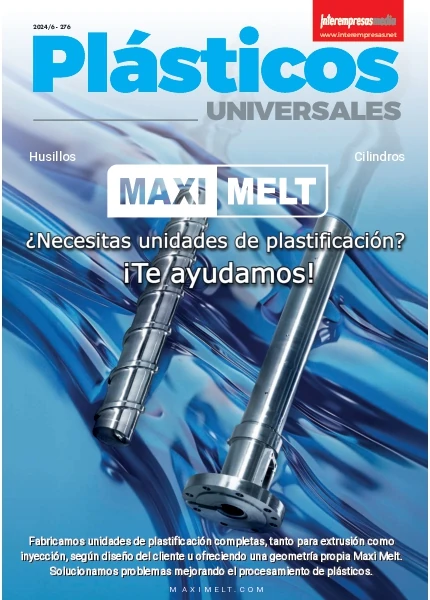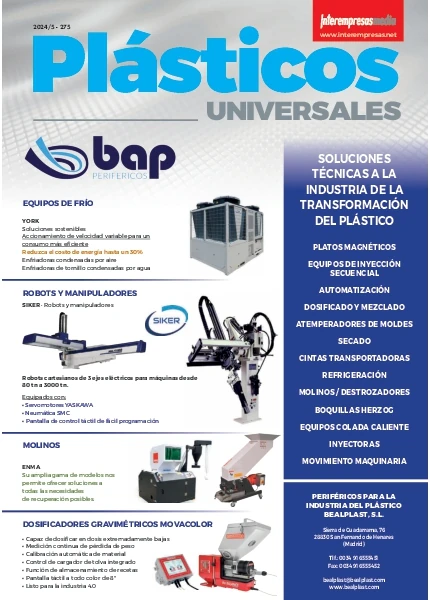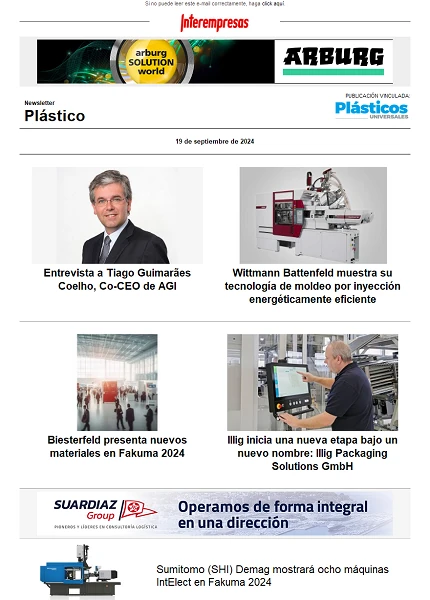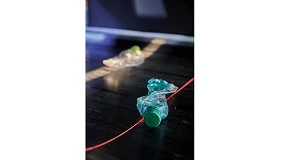Alfapac, las primeras bolsas de basura biodegradables fabricadas 100% a partir de fécula de patata
Las bolsas de basura Alfapac están fabricadas a partir de fécula de patata y su utilización tiene grandes beneficios para el medio ambiente. Un gesto por el futuro del planeta, ya que su utilización en la economía doméstica supone la mejor alternativa al consumo de bolsas de basura fabricadas con plástico.
A partir de la fécula de 15 patatas se pueden obtener 100 bolsas de basura 100 por cien biodegradables, disponibles en diferentes tamaños, y que son bioplásticos, compostables, reciclables y libres de CO2. Asimismo, aprovechando sus beneficios ecológicos, se pueden convertir en abono para la agricultura biológica contribuyendo a la fertilización de, cultivos, jardines y campos.
Todas las propiedades de Alfapac quedan garantizadas por la norma EN 13432 que establece los procedimientos de análisis para la biodegradabilidad y su posibilidad de convertirlos en abono.
El desarrollo en España de las bolsas de plástico biodegradables responde a una iniciativa del Gobierno para que estén disponibles para los supermercados españoles y para sensibilizar a los consumidores españoles. Esta iniciativa llega a España, dos años después del éxito conseguido en Francia por el grupo Sphere tras el lanzamiento en 2006 de Alfapac 100 por cien biodegradable. La nueva generación de bolsas de basura se ha convertido en la primera gama de bolsas de uso doméstico biodegradables vendida en gran distribución y supone actualmente para la compañía francesa el 67 por ciento de su negocio.
El agotamiento de los recursos fósiles
El desarrollo de los plásticos convencionales está enfrentado al próximo agotamiento de los recursos fósiles; los bioplásticos derivados del desarrollo químico vegetal representan una seria solución a un problema que hoy, es económico, social y ambiental.
A pesar que las materias primas derivadas del petróleo y del gas representen solo un 4 por ciento del consumo petrolífero, los expertos consideran que las reservas se agotaran en unos 35/70 años. Teniendo en cuenta que la oferta petrolífera tiene cada vez mas dificultad en satisfacer una demanda que esta en fuerte crecimiento, los costes del petróleo no dejan de subir, de 12 dólares en 1999 a más de 80 dólares en 2007.
Incluso, los costes de las materias primas tal como el polietileno que asume en consecuencia la evolución del precio del petróleo: de 500 euros la tonelada en 1999 a 800 en 2001 para llegar a los 1.300 euros en 2007.
El final de la Política Común en 2013 obliga al mundo de la agricultura a encontrar otras fuentes de financiación y por consecuencia otros mercados. La industria no alimenticia tal como la energía o la química constituyen una extraordinaria oportunidad para los agricultores europeos.
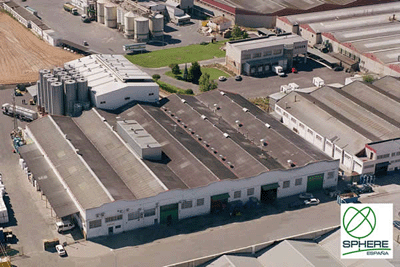
Industria plástica europea
La industria plástica europea no se tiene que convertir en el textil del siglo 21. Actualmente sufre una gran competencia en los países asiáticos que se apoya en unos costes de producción bajos así como el dumping salvaje.
La innovación bajo todas sus formas ha sido la clave del desarrollo en este sector en los últimos 30 años y todavía es la innovación que le permitirá seguir la producción de mañana y pasado mañana.
La prioridad de cuidar el medioambiente
Al contrario de los plásticos derivados de los recursos fósiles, los bioplásticos no generan emisiones de gas sin el efecto invernadero adicional. Efectivamente, el uso de biomasas renovables atenúa el calentamiento global: el CO2 producido por degradación (o incineración) proviene del CO2 absorbido por las plantas en la atmósfera durante su crecimiento. Se convierte gracias a la fotosíntesis, por las plantas cultivadas posteriormente para remplazar los productos biodegradables.
Optimizar la gestión de desechos se vuelve una cuestión de primera orden. Las filiales ‘incineración’ y ‘reciclaje’ tienen márgenes de evolución muy importantes, por su parte, la filial ‘abono’ suscita un gran interés político y se debería estructurar y desarrollar en los próximos años.
En este contexto, el grupo Sphere, líder europeo y 4º mundial en bolsas de basura y envoltorios alimenticios ha dado una nueva orientación estratégica a su grupo adquiriendo el 50 por ciento de Biotec & Co. KG en 2005 y el 60 por ciento de la fabrica de fécula d´Haussimont en 2007. Es así que el grupo Sphere toma parte en todas las filiales de bioplásticos.
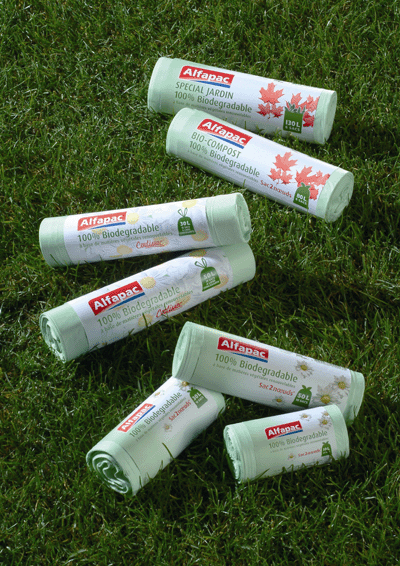
Plástico: materia capaz de deformarse bajo la acción de una fuerza exterior y de volver.
Biopolímeros: polímeros presentes en organismos vivos o sintetizados por estos. Incluyen polímeros derivados de recursos renovables que se pueden polimerizar para fabricar bioplasticos.
Bioplasticos: plásticos fabricados a partir de biopolímeros. Son biodegradables conforme a la norma NF EN 13432 : 2000. Describe las exigencias esenciales relativas a envoltorios biodegradables y de compostage. Permite determinar la biodegradación y la desintegración del envoltorio, en un tiempo marcado y así controlar la concentración de metales pesados y la ausencia de eco-toxicidad. El umbral de biodegradabilidad impuesto de 90 por ciento debe alcanzarse en un plazo máximo de 6 meses.
Biodegradación: es la digestión por micro-organismos, después de la descomposición y bajo los efectos de la humedad, del oxigeno y de la temperatura. El resultado es la formación de agua, de carbono y de biomasa.
Compostabilidad: análisis de la cantidad de abono después de la biodegradación (degradación química) y de la desintegración (degradación física).
Compost: materia prima usada como estiércol natural para la producción agrícola.
Resinas bioplásticas Bioplast
Bioplast es una nueva generación de resinas bioplásticas derivadas del laboratorio de investigación y el desarrollo de Biotec GmbH & Co. KG. Están fabricados con fécula de patata. Este tubérculo ofrece grandes ventajas, como su rendimiento por hectárea y su nivel de almidón. La adquisición del 60 por ciento por el grupo Sphere de las fabricas de fécula de Haussimont (Champagne Ardenne) permite a la empresa Biotec conseguir una gran calidad de fécula.
La fécula de patata es la base de Bioplast y permite, después de transformarla, el poder de ofrecer una condición inodora indispensable para su aplicación en envoltorios alimenticios (films, barquetas, botes, etc.).
Bioplast son los primeros bioplasticos sin materia plástica, lo que permite obtener productos más homogéneos y evitar problemas de residuos y de vapor de agua durante la transformación. Cumplen las normas europeas siguientes: 94/62/CE, ausencia de metales pesados en embalajes 2002/72/CE oficialmente reconocido para el contacto alimenticio. Se manipulan como una materia plástica tradicional. Así, los especialistas no deben hacer ninguna inversión estructural adicional, sino, simplemente adaptar los parámetros de transformación a los Bioplast.
También, los productos fabricados en bioplast pueden colorearse con materiales biodegradables y ser impresos con tintas al agua, pueden beneficiarse del la marca ‘OK Compost’ y ‘Compostable’. La gama Bioplast compuesta de cinco referencias abarca un gran número de aplicaciones tanto rígidas como flexibles.
No importa el método de aplicación ni de transformación, las resinas Bioplast ofrecen los mismos resultados que cualquier termoplástico derivado del petróleo. La idea de ‘biodegradable = frágil’ es absurda y anticuada, una bolsa hecha en Bioplast tendrá la misma resistencia que una del mismo espesor fabricada en polietileno. Los productos fabricados en Bioplast se conservan y se guardan como los productos tradicionales; ya que solo se desintegran o biodegradan al entrar en contacto con microorganismos. Por ello se utilizan en las mismas condiciones que los plásticos que se obtienen del petróleo.
Las utilidades principales de los bioplásticos
Embalajes alimentarios o no: todo tipo de bolsas, films ligeros, vasitos, bandejas...
Embalajes industriales: films y partículas de calados.
Productos para agricultura: films de pajas y cintas.
Productos de higiene y varios: bastoncillos, platos desechables, pañales...
Algunos polímeros de origen vegetal se utilizan también en la industria automóvil (para piezas técnicas).


